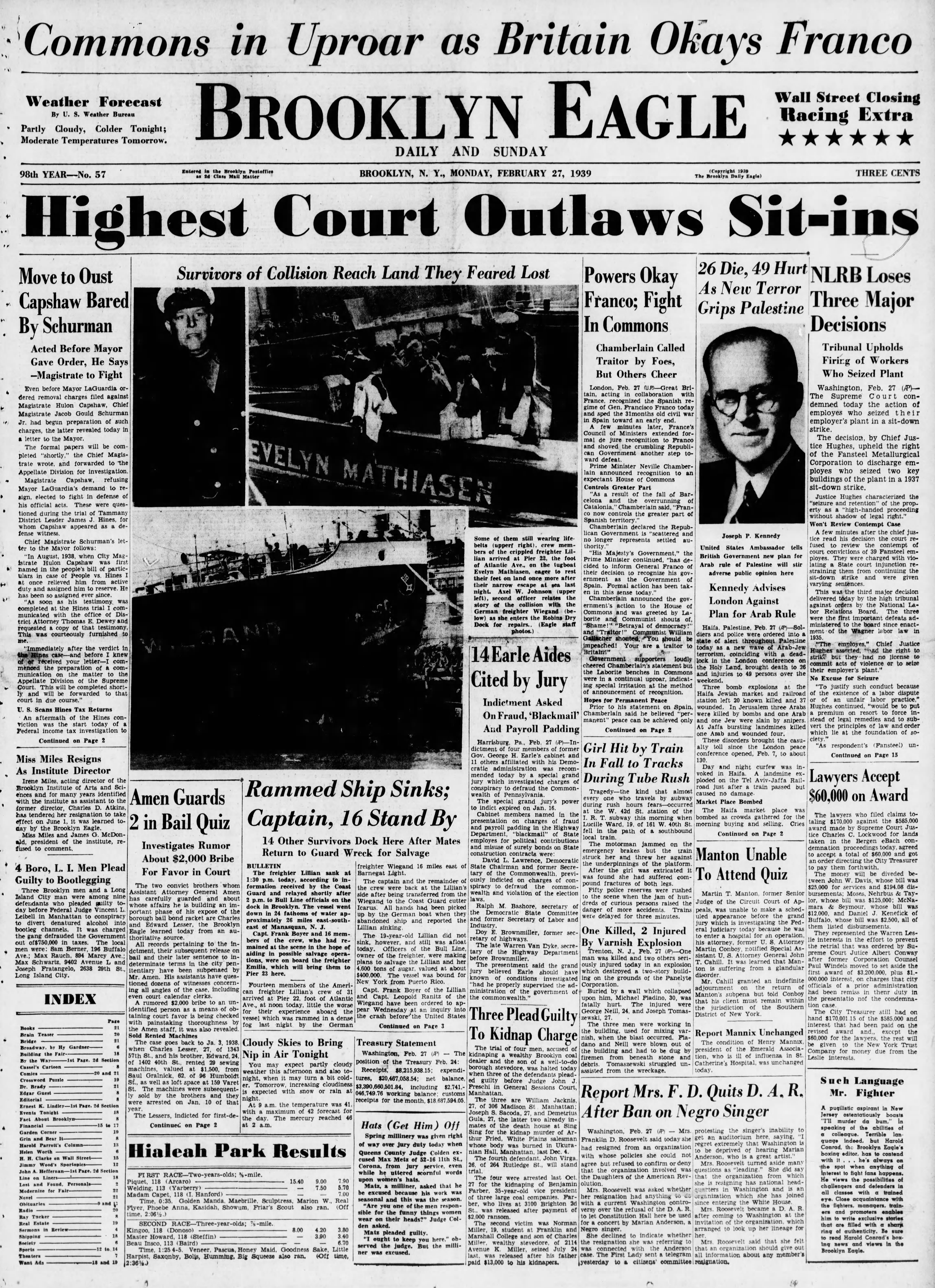February 27: ON THIS DAY in 1939, highest court outlaws sit-ins

ON THIS DAY IN 1860, the Brooklyn Daily Eagle reported, “The Republican Party have very adroitly taken advantage of the popularity of the lecture system to propagate their principles. Under the guise of literary entertainments, such men as G.W. Curtis, Wendell Phillips, and others have in our lecture rooms preached the doctrines of Seward and Helper. Many who habitually attend lectures are generally attracted more by the desire to see some celebrity than by the subject of his discourse; and many go to see Phillips, Garrison, and Cassius M. Clay out of mere curiosity to see the men, as they would as soon go to see Barnum’s mermaid. As a class, lecture-goers are a people who do not usually attend political meetings. Latterly, the disguise of literary discourses has been thrown off, and the Republicans have openly announced their political lectures. But clinging to the claptrap of the lecture system, they have brought out only great guns from abroad, whose fame and notoriety had excited a curiosity to see them. A course of Republican lectures is now in progress at the Cooper Institute. Phillips, Giddings, and Clay have delivered themselves; tonight, Abraham Lincoln, Douglas’s Republican competitor from Illinois, will hold forth.”
***
ON THIS DAY IN 1922, the Eagle reported, “Washington, Feb. 27 – The Woman’s Suffrage, or Nineteenth Amendment, was today declared constitutional by the Supreme Court. The Supreme Court dismissed for want of jurisdiction the suit brought by Charles S. Fairchild of New York, who sought to challenge the constitutionality of the amendment. The opinion of the court was delivered by Justice [Louis] Brandeis. The Woman Suffrage Amendment to the Constitution was challenged in the Supreme Court in proceedings instituted by Charles S. Fairchild of New York, for himself and in behalf of the American Constitutional League, to enjoin the secretary of state from issuing and the attorney general from enforcing a proclamation declaring the ratification of the amendment, and by Oscar Leser and other citizens of Maryland, constituting an organization known as the ‘Maryland League for State Defense.’ The former proceedings were based on the ground that the amendment had not been validly adopted, and the latter that the amendment was unconstitutional.”

Brooklyn Boro
View MoreNew York City’s most populous borough, Brooklyn, is home to nearly 2.6 million residents. If Brooklyn were an independent city it would be the fourth largest city in the United States. While Brooklyn has become the epitome of ‘cool and hip’ in recent years, for those that were born here, raised families here and improved communities over the years, Brooklyn has never been ‘uncool’.